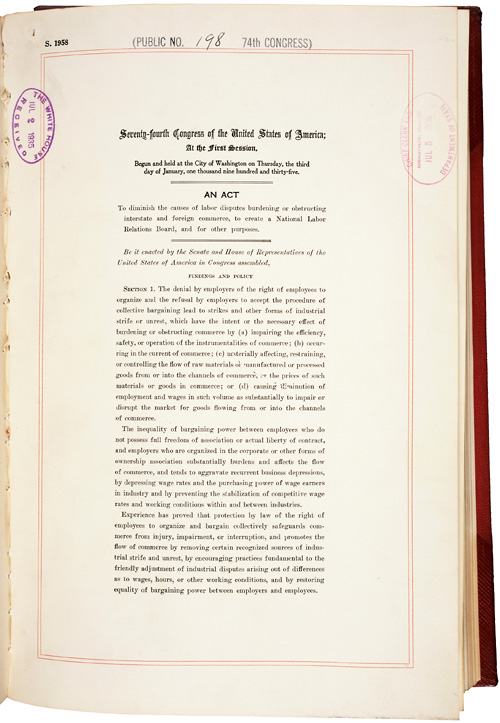National Labor Relations Act, usually called the Wagner Act, is a law that guarantees the right of workers in the United States to form unions. It also ensures the right of employees to engage in collective bargaining–that is, to negotiate as a group with employers about wages, hours, and working conditions.

The rights of workers were originally protected by the National Industrial Recovery Act (NIRA) of 1933, which the Supreme Court declared unconstitutional in 1935. The Wagner Act was passed later that year to reaffirm those rights. Its main sponsor was Senator Robert F. Wagner, a New York Democrat.
The Wagner Act bans certain practices by employers. For example, it prohibits them from interfering with union efforts to bring workers into unions. The act also requires employers to negotiate with representatives elected by workers. The act established the National Labor Relations Board (NLRB) to enforce such provisions (see National Labor Relations Board ).
The Wagner Act enables employees of individual companies to decide which union or person will negotiate for them. A worker or employer may request the NLRB to conduct an election among the workers to choose a representative. The employer must then bargain only with the elected representative.
Many employers believed the Wagner Act gave unions too much power. They complained that it allowed unions to force a business to hire only union members. Such a business is called a closed shop. The Taft-Hartley Act of 1947 amended the Wagner Act and outlawed some union activities.
See also New Deal ; Taft-Hartley Act .
